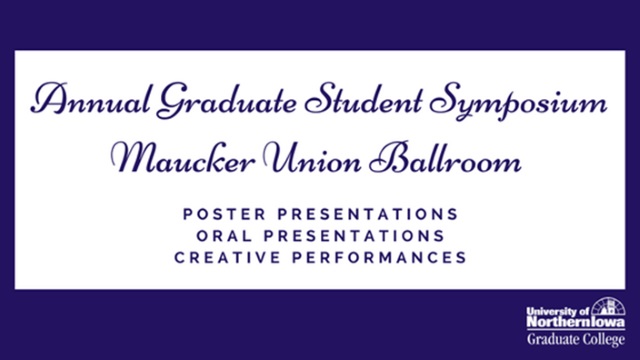
Complete Schedule
Researchers' Acceptability of Questionable Research Practices Across Disciplines
Presentation Type
Poster Presentation (Electronic Copy Not Available)
Keywords
Research--Corrupt practices; Research--Moral and ethical aspects;
Abstract
Questionable research practices (QRPs) are detrimental to scientific research (John, Loewenstein, & Prelec, 2012). Investigation of QRPs is prevalent in economics and psychology, but less understood in political science (Banks et al., 2016). The purpose of the current study was to investigate QRPs among faculty and graduate students from a variety of fields (i.e., economics, psychology, political science) and types of institutions (e.g., R1, M1). Participants included a stratified random sample of faculty and graduate students from a large pool of institutions within the United States, representing the fields of psychology (n = 110), economics (n = 51), and political science (n = 79). Online surveys were modified from previous research (John et al., 2012; Motyl et al., 2017), assessing acceptability of engagement in QRPs and positive, anti-QRP behaviors on 7-point Likert scales ranging from very unacceptable (1) to very acceptable (7). Faculty and graduate students generally recognized that QRPs were not acceptable, but psychologists tended to view several of them as less acceptable than did economists. Nonetheless, some QRPs (e.g., reporting an unexpected finding as if it were predicted from the start) were endorsed at a high rate of acceptability, albeit differing in intensity between disciplines. For example, psychologists rated engagement in some QRPs (e.g., HARKing) as less acceptable when compared to economists. Further, despite less attention to QRPs in political science, they generally rated behaviors as equally acceptable to psychologists and economists. These results suggest that there are still areas where more education about QRPs is needed.
Start Date
3-4-2019 11:00 AM
End Date
3-4-2019 1:00 PM
Faculty Advisor
Helen Harton
Department
Department of Psychology
Copyright
©2019 Zachary Meehan & Anna Garner
File Format
application/pdf
Embargo Date
4-16-2019
Researchers' Acceptability of Questionable Research Practices Across Disciplines
Questionable research practices (QRPs) are detrimental to scientific research (John, Loewenstein, & Prelec, 2012). Investigation of QRPs is prevalent in economics and psychology, but less understood in political science (Banks et al., 2016). The purpose of the current study was to investigate QRPs among faculty and graduate students from a variety of fields (i.e., economics, psychology, political science) and types of institutions (e.g., R1, M1). Participants included a stratified random sample of faculty and graduate students from a large pool of institutions within the United States, representing the fields of psychology (n = 110), economics (n = 51), and political science (n = 79). Online surveys were modified from previous research (John et al., 2012; Motyl et al., 2017), assessing acceptability of engagement in QRPs and positive, anti-QRP behaviors on 7-point Likert scales ranging from very unacceptable (1) to very acceptable (7). Faculty and graduate students generally recognized that QRPs were not acceptable, but psychologists tended to view several of them as less acceptable than did economists. Nonetheless, some QRPs (e.g., reporting an unexpected finding as if it were predicted from the start) were endorsed at a high rate of acceptability, albeit differing in intensity between disciplines. For example, psychologists rated engagement in some QRPs (e.g., HARKing) as less acceptable when compared to economists. Further, despite less attention to QRPs in political science, they generally rated behaviors as equally acceptable to psychologists and economists. These results suggest that there are still areas where more education about QRPs is needed.


